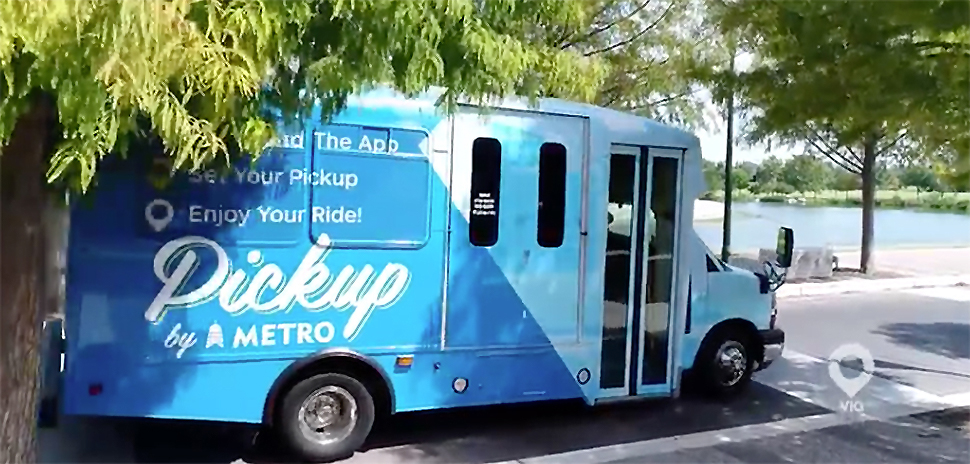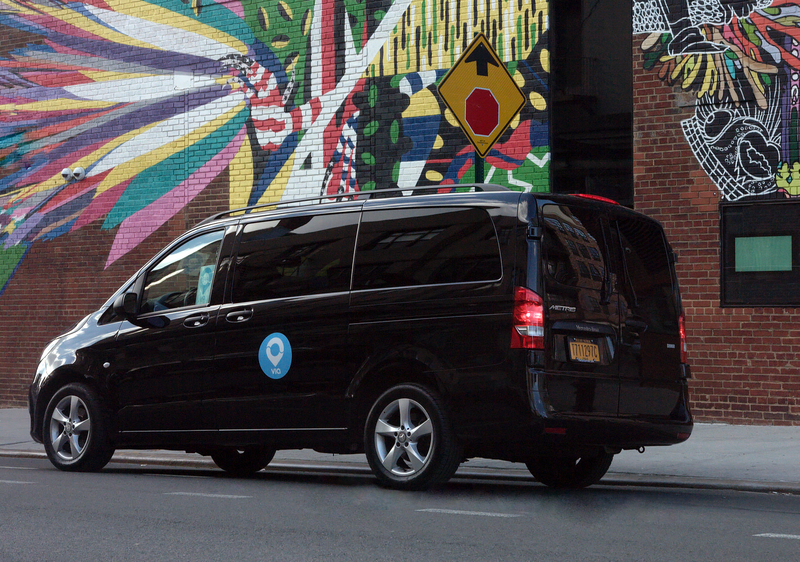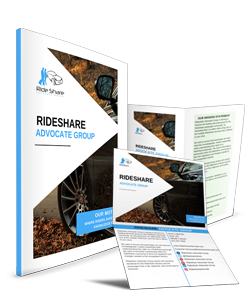Ride-hailing drivers would be fingerprinted — and required to rein in “surge pricing” — under a surprise crackdown that advanced through a City Council committee over the objections of Uber and Lyft.
Earlier this year, Transportation Committee Chairman Anthony Beale (9th) told the Chicago Sun-Times that a city commission charged with conducting an “independent study” of fingerprinting was poised to recommend that the city not adopt the requirement for Uber and Lyft drivers. But the committee has yet to issue its final report.
On Wednesday, Beale — who favors the fingerprinting of drivers — got tired of waiting.
He pushed through his committee an ordinance that would require ride-hailing drivers to “submit to fingerprinting, provide a photograph” and pay a processing fee, whether the application is approved or denied.
Uber and Lyft have long maintained that a background check based on FBI fingerprinting would discriminate against minorities who are “far more likely to have an interaction with the criminal justice system” — and often for minor, nonviolent offenses where the charges are dropped but the record has not yet been expunged.
Beale ridiculed that “sky-is-falling” warning and dared Uber and Lyft to “walk away from billions of dollars.”
He portrayed fingerprinting as pivotal to riders’ safety because it’s the “one way to make sure a person is who they say they are.”
“Six months is a long time to wait past the deadline. It’s important that we go ahead and move this forward,” he said.
The surge-pricing cap was driven by what Beale calls the predatory pricing by Uber and Lyft after a CTA service disruption last month that left thousands of commuters scrambling to get to work.
If the full Council approves, surge pricing would be capped at 150 percent above the average regular fare set during the seven days preceding any “unforeseen emergency.”
That’s defined as “any actual or threatened terrorist attack, mass shooting, major disruption in public transportation, failure or shortage or electric power and inclement weather.”
“A $12 cab ride turned into over $100 because they surge-priced. They’re taking advantage of a person’s misfortune. They got a refund. But, who told them to refund?” Beale said, referring City Hall.
“If the company is gonna surge price, so be it. But it should be for planned events. People know what they’re getting themselves into. But when CTA breaks down, they’re taking advantage of people’s misfortune.”
Beale has received thousands of dollars in contributions from the taxicab industry. He’s the City Council’s champion for a shrinking industry fighting for survival in the Uber era.
But the chairman denied that the ordinance he muscled through committee was a payback for campaign contributions received from a dying industry.
“This is about the safety and well-being of the people of Chicago. If you get into an Uber, I want to make sure you’re safe,” he said.
Uber, whose investors include Mayor Rahm Emanuel’s brother, said the company agrees with local congressmen and former Attorney General Eric Holder.
All of them have “raised concerns about the discriminatory impact of fingerprinting and bio-metric background requirements that can discriminate against minority communities,” the company said.
Uber noted that it has “pro-actively refunded customers who were impacted by higher than normal prices” after the CTA disruption.
Business Affairs and Consumer Protection Commissioner Rosa Escareno said she has already taken a strong stand against “surge prices that gouge consumers.”
“When Uber and Lyft had outrageous surge prices in Chicago a few weeks ago we called out the practices as being unacceptable, the companies refunded drivers, and they are working with us to develop standards to ensure nothing like that ever happens again,” Escareno was quoted as saying in an emailed statement.
Escareno said she’s well aware that fingerprinting is “an important issue” to Beale and she has also “taken it seriously.”
“In the past two months we have engaged UIC to produce a study on the practices of fingerprinting and background checks to ensure any plan strikes the appropriate balance between access to transportation for consumers, jobs for drivers and the absolute need to ensure safety,” she said.
Uber and Lyft were blindsided by Wednesday’s vote because the supplemental agenda including the finger-printing and surge-pricing crackdown wasn’t posted on the city clerk’s website until shortly before 1 p.m. on Tuesday.
That’s well short of the required, 48-hour public notice.
Beale insisted that he filed the ordinance — with a hand-stamp to prove it — at 12:06 p.m. Monday. He blamed a “computer problem” in the clerk’s office for any posting delay.
Last year, a divided City Council agreed to license, but not fingerprint, ride-hailing drivers amid threats from Uber and Lyft to abandon the Chicago market.
Under pressure from Emanuel, Beale agreed to a compromise that would license all Uber and Lyft drivers after a daylong course that could be completed online and background checks performed by those ride-hailing companies, which would share the information with the city.
That compromise put fingerprinting on hold for six months–time enough to conduct the “independent study.”




 Khalid Rashid
Khalid Rashid/cdn.vox-cdn.com/uploads/chorus_image/image/57764063/GettyImages-858492214.0.0.jpg)










